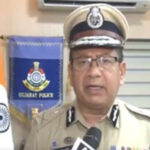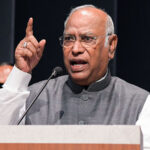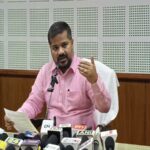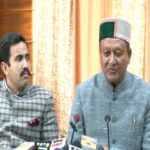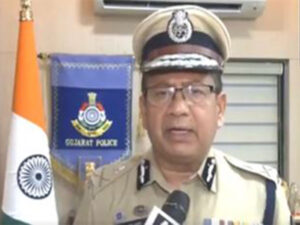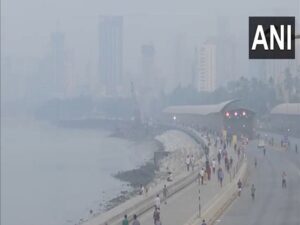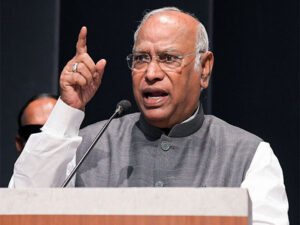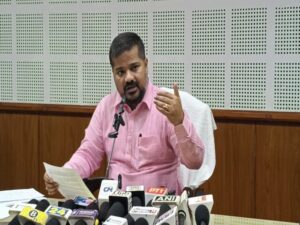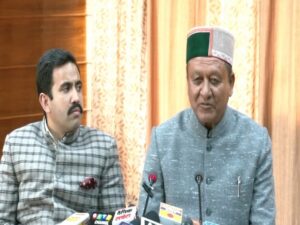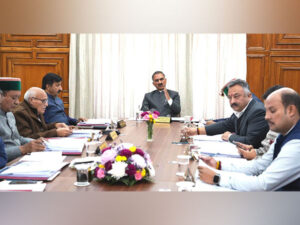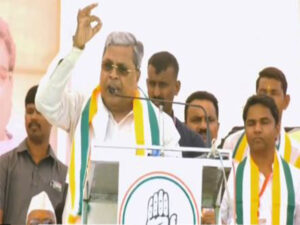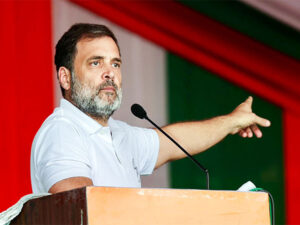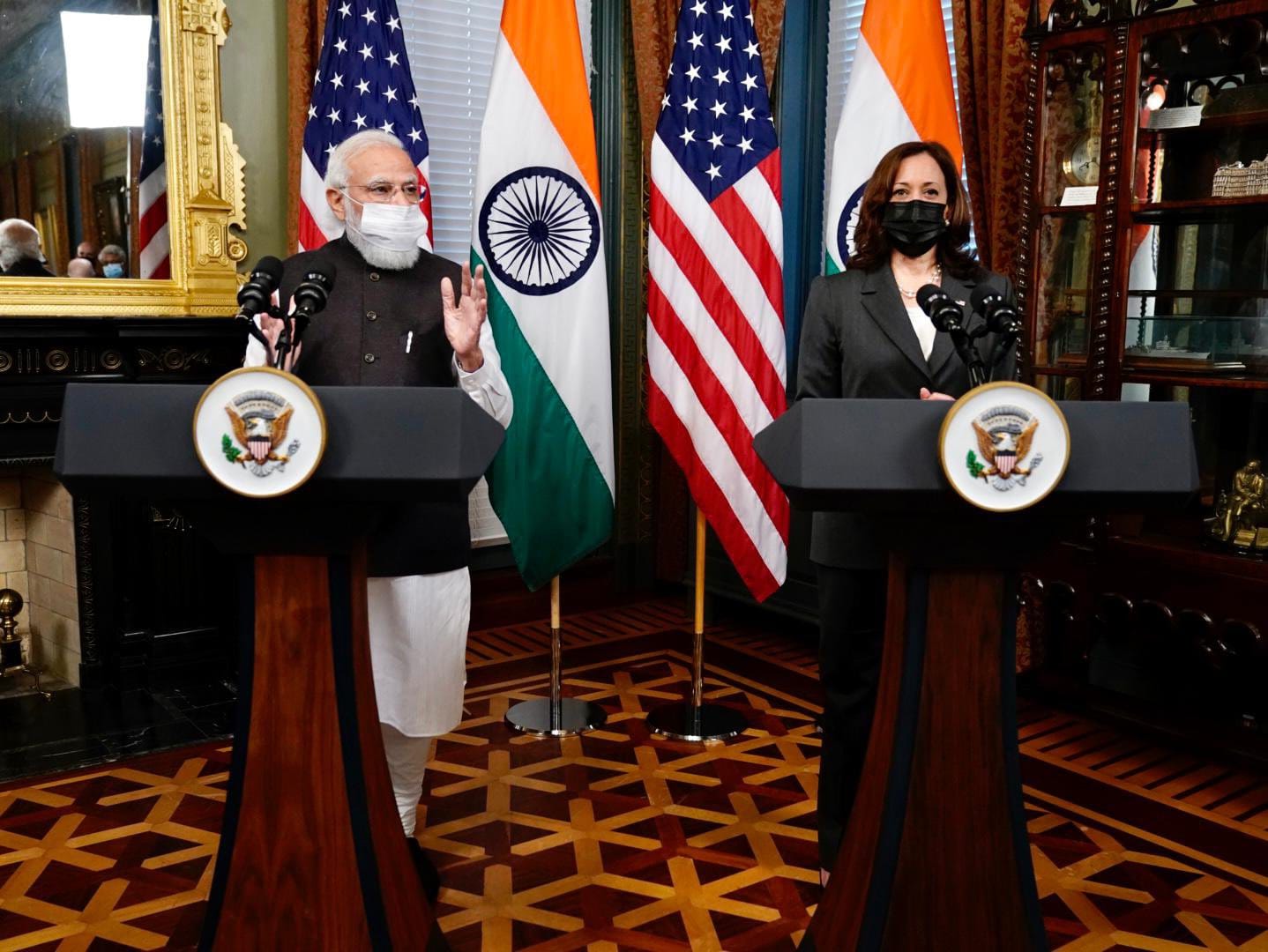
Vice President Kamala Harris welcomed Prime Minister Narendra Modi to the White House complex Thursday, a day ahead of his bilateral meeting with President Joe Biden and the Quad Leaders Summit. Photo credit: PMO Office
By Geeta Goindi
Washington, DC, September 24, 2021 – Vice President Kamala Harris welcomed Prime Minister Narendra Modi to the White House complex, Thursday, a day ahead of his bilateral meeting with President Joe Biden and the Quad Leaders Summit.
The event included a photo-op of Harris and Modi exchanging pleasantries and delivering remarks before their bilateral meeting in the vice president’s ornate ceremonial office located in the Eisenhower Executive Office Building next to the West Wing of the White House. It was quite a sight: the first ever woman vice president of the United States who traces her roots to Tamil Nadu, India, standing alongside the leader of India.
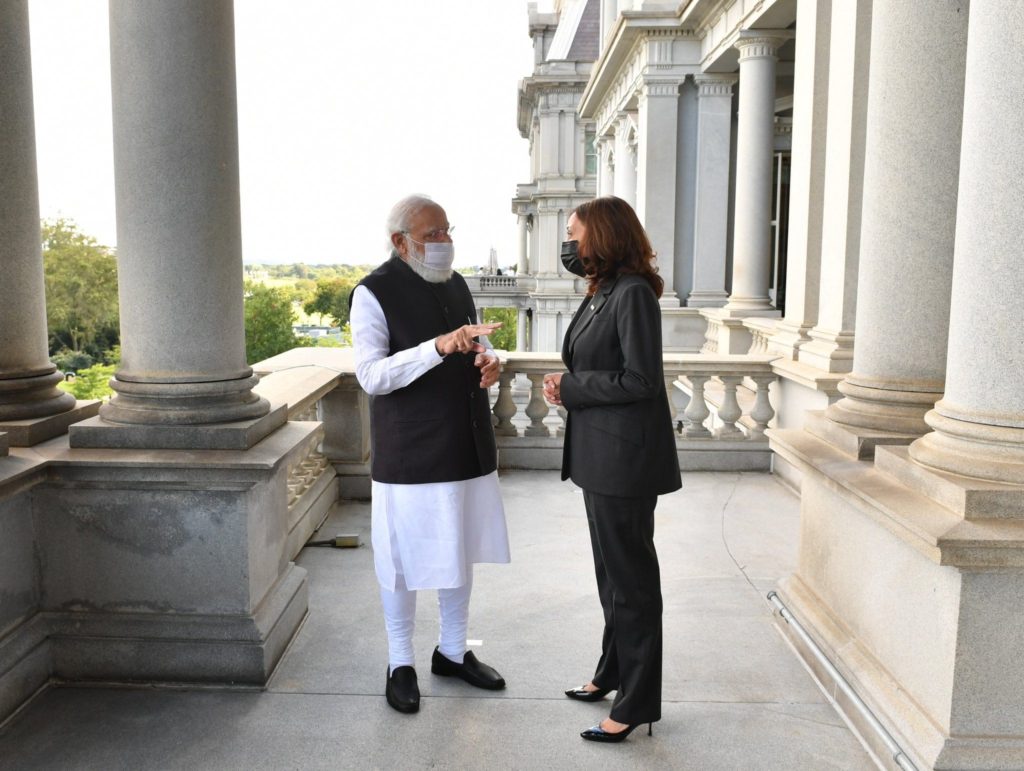
Donning a white mask in compliance with Covid-19 prevention guidelines, Modi spoke in Hindi. “Your being elected as the vice president is such an historic event”, he told Harris. “You are the source of inspiration for so many people across the world”, he said, expressing confidence that India-US ties will continue to grow in the Biden-Harris administration.
“Both President Biden and you assumed office at a time when our planet faced very tough challenges. In a short time, you have had many achievements to your credit be it Covid-19, climate change or the Quad”, he said.
Extending a special invitation to the vice president to visit India, Modi told Harris that the people of India are waiting to welcome her. He gifted the vice president with a copy of old notifications, in a wooden handicraft frame, that were related to her grandfather PV Gopalan, an Indian government officer.
The high-powered delegation accompanying Modi included: external affairs minister Dr. S. Jaishankar; national security advisor Ajit Doval; foreign secretary Harsh Vardhan Shringla; and Indian ambassador Taranjit Singh Sandhu.
On the vice president’s side were: her national security advisor Nancy McEldowney; chief of staff Tina Flournoy; deputy national security advisor Philip Gordon, Sumona Guha, senior director for South Asia in the National Security Council; Don Lu, Assistant Secretary of State for South and Central Asian Affairs in the State Department; and David Richelsoph, special advisor for South Asia.
At the outset of her remarks, Harris emphasized that “India, of course, is a very important partner to the United States. Throughout our history, our nations have worked together, have stood together to make our world a safer and stronger world”, she said.
The vice president warned, “As democracies around the world are under threat, it is imperative that we defend democratic principles and institutions within our respective countries and around the world and that we maintain what we must do to strengthen democracies at home”.
“I know from personal experience and from my family of the commitment of the Indian people to democracy and to freedom and to the work that may be done and can be done to imagine and then actually achieve our vision for democratic principles and institutions”, she said.
Later, briefing reporters, foreign secretary Shringla divulged that Harris referred to Pakistan’s role in terrorism during the bilateral meeting with prime minister Modi, “When the issue of terrorism came up, the vice president suo moto referred to Pakistan’s role in that regard”, acknowledging there were terror groups working in the country that posed a threat to both India and the US, the foreign secretary said.
“She asked Pakistan to take action so that these groups don’t impact US and India’s security. She agreed with the prime minister’s briefing on the fact of cross-border terrorism, and the fact that India has been a victim of terrorism for several decades now, and on the need to rein in and closely monitor Pakistan’s support for such terrorist groups” Shringla said.
The vice president interacted with Modi for the first time on June 3 when, via a telephone call, she apprised him of the US plan to share the first 25 million doses of Covid-19 vaccines with India along with other countries.
Referring to that phone call at their in-person meeting Thursday afternoon, Harris recalled they “talked about how our world is more interconnected and interdependent than ever before. And the challenges that we face today have highlighted that fact – be it Covid-19, the climate crisis, and the importance of our shared belief in a free and open Indo-Pacific region”, she said.
Noting that India was a vital source of vaccines for other countries early in the pandemic, the vice president welcomed India’s announcement that it will soon be able to resume vaccine exports. She expressed admiration that India is currently vaccinating some 10 million people daily.
About the phone call with the vice president, Modi recounted, “One of our interactions happened when India was battling a very tough wave of Covid-19 infections. I recall your kind words of solidarity that time”, he said in his remarks with the vice president by his side. “The way you spoke to me so warmly and so naturally, I will always remember that”.
The prime minister affirmed, “There are very vibrant and strong people-to-people connections between India and the US. You know that all too well. More than four million people of Indian origin, the Indian community, is a bridge between our two countries. And their contribution to the economies and societies of both our countries is indeed very praiseworthy”, he said.
Regarding the issue of the climate crisis, Harris noted that the Indian leader takes it seriously. “The president and I believe very strongly that the United States working together with India can have not only a profound impact on the people of our respective nations, but on the world itself”, she said.
Following their maiden meeting, Modi tweeted he was glad to have met the vice president “Her feat has inspired the entire world. We talked about multiple subjects that will further cement the India-USA friendship which is based on shared values and cultural linkages”.
